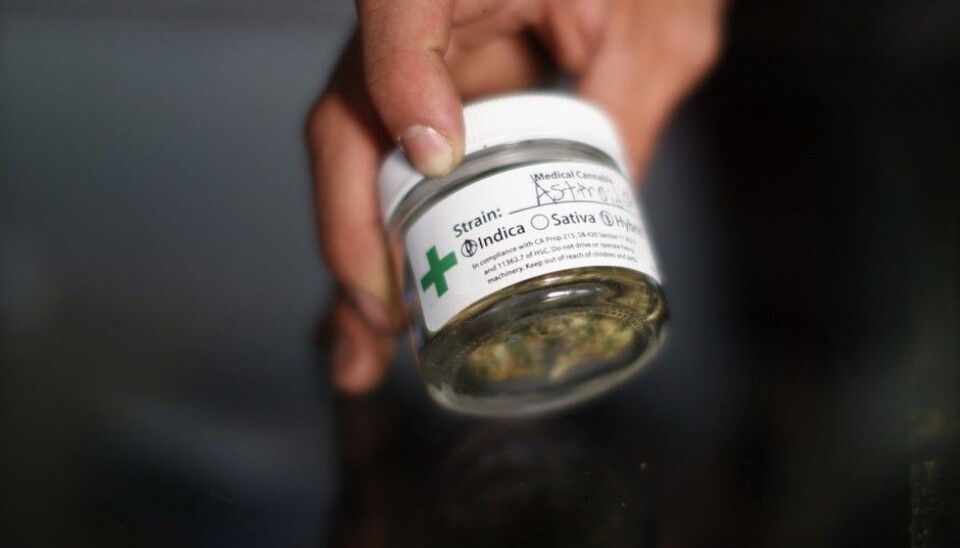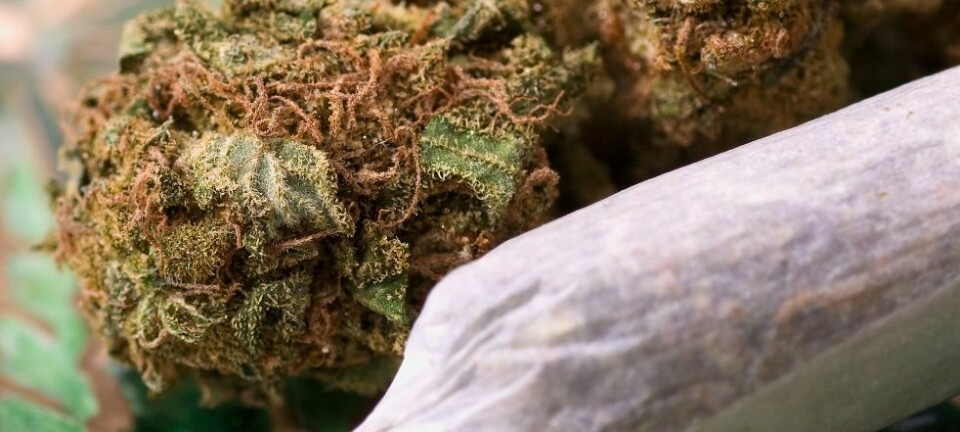An article from Norwegian School of Economics (NHH)

Legalization of medical marijuana reduces crime
Illegal drugs are pushed out of the market when a country legalizes marijuana. Much crime disappears. This is the finding in a new study on legalization of medical marijuana in the United States.
Denne artikkelen er over ti år gammel og kan inneholde utdatert informasjon.
23 states in the USA have legalized medical marijuana. This means that the drug can be bought and cultivated for personal use if a person holds a prescription.
Experiences from the Netherlands
"We were interested in the effects of the legislation on crime. Based on the situation in the Netherlands, we saw no reason for the legalization to result in an increase in crime," says post-doctoral researcher Floris Zoutman of the Department of Business and Management Science at NHH.
The researchers have used FBI statistics to investigate the effect of the legalization on two types of crime: theft and violence. In the study, they looked at the 18 states that had introduced such laws before 2012.
Smuggling crosses state boundaries
"Comparing data from before and after the legalization, and comparing it with states that have not legalized marijuana gave us a good picture of the effect of the laws," says Gavrilova.
The researchers found a clear decline in both theft and violent crime in the states that legalized marijuana and share a border with Mexico. Much of the drugs that are sold illegally in the USA are smuggled precisely through these states.
"Border states are hit the hardest by the crime associated with smuggling. There are many reasons for this. For example, you might need to steal a car if you are carrying illegal drugs from Mexico into the USA via California," says Gavrilova.
Drug gangs and their rivalry also lead to an increase in crime in border states.
"One example of this is drive-by shootings. Gangs drive through each others' neighbourhoods and fire shots from the windows of the cars in order to scare off their rivals' customers," says Zoutman.
Legalization means loss of income for smugglers
When marijuana is legalized, anyone with a prescription can legally buy and collect the drug from a dispensary. The prices are a little higher than on the street, but the quality on the street also varies more. The marijuana in the dispensaries, on the other hand, is of a more consistent quality, and it is even possible to complain, if necessary.
"This makes legal marijuana even more appealing. And even though the legalization applies to medical marijuana, it is not difficult to procure the drug. The drug is used for pain relief, and as pain is subjective, anyone can go to a doctor and say that they are in pain. It is also easy to buy prescriptions," says Zoutman.
The illegal market feels the effects when many users begin using legal marijuana.
"Marijuana is the largest export product of Mexican smugglers, and many of them simply lose their source of income," says Gavrilova.
The study shows that legalization not only results in less marijuana being smuggled, but that the legislation also affects the amount of cocaine and heroin that is brought into the country.
"When the demand for marijuana declines, this hurts the importers so much that they have trouble importing other drugs," says Zoutman.
"It is also possible that some users switch from other drugs to medical marijuana," he says.
The study allows generalizations
The two researchers believe that the results from the study can be transferred to other countries, including Norway.
"We know that there is much crime associated with smuggling and sales. A larges share of this crime vanishes when a country legalizes the drug. We see no reason for the same not to happen in other countries if they legalize it," says Zoutman.
"Legalization would also provide some control over the market. It would then be possible to, for example, tax marijuana and, in the same way as alcohol and tobacco, try to curb use through high taxes," says Gavrilova.
At the same time, legalization could also increase the use of marijuana. Its use has risen steadily in the USA during the past decade.
"We do not know if this is related to the legalization, but it is probable. Naturally this can be a problem. Our study only looks at one aspect of the legalization – crime. We do not have any information about the health effects," she says.
---------------
Read the Norwegian version of this article at forskning.no

































